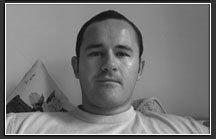GT:Africa .:. Pre-Burkina Faso
 3rd Stop
3rd Stop
Planned Attendance: August 20th - August 23rd, 2007
One of the lesser known countries I'll be visiting, Burkina Faso is home to some of the most fun-to-say names in Africa. I'll hit at least two of them in Ouagadougou (Wah-ga-do-goo) and Bobo-Dioulasso in my few days here. I have a feeling I'm going to wish I had more time here, but alas, I want to get a full two weeks in Ghana.
After the French arrived in the second half of the 19th century, they could never really figure out what to do with this land. Upon arrival, they broke up the structured, traditional Mossi states and threw the entire country into the Colonie du Haut Sénégal-Niger. In 1919, they broke it out as a separate colony which they dubbed Upper Volta. In 1932, for "purely commercial reasons" (according to Lonely Planet), the French sliced it up and grafted more than half onto Côte d'Ivoire and the rest onto Mali and Niger. Then, after WWII, it became Upper Volta once again. Throughout its command of Upper Volta, the French consistently elected to focus on its other colonies and did little to develop Burkina opting to treat it as a "repository for forced labour" (Lonely Planet).
After gaining its independence in 1960, Upper Volta saw a few ineffective, autocratic leaders
and no less than five coups before 1983. The last, in 1982, was the most notable and lead by an ambitious left-wing military star - a Captain Thomas Sankara, also called Thom Sank. In 1984, Sankara renamed the country Burkina Faso which means 'Land of the Incorruptable' and immediately went to work to promote self-relianace in rural areas. He was determined to stamp out government excess; made Renault 5s the official car of the president and ministers, cut government salaries by 25%. In 1985, he even dismissed most of his cabinet and sent them to work on agricultural co-ops.
In one 15-day blitz, his government vaccinated 60% of Burkina's childrend against measles, meningitis and yellow fever. Sankara's government sent representatives from each village for training as paramedics. From 1983 to 1986, more than 350 communities built schools using their own labor - an effort which saw education of school-age children rise by a third, albeit to 22%. Sankara's government kept accurate financial records, kept debt financing to a minimum and enabled Burkina to be one of the few African nations who's per capita GNP increased during the 1980s.
Not everyone appreciated the steps Sankara took for Burkina. While endeared by ordinary Burkinabés, those with other vested interests including trade unions, landlords and the USA and France were less enthused. Sankara's mandate that all rents be handed directly to the government (and his statements calling rich people 'thieves') did not help his longevity. In 1987, a group of junior officers seized power and took Sankara to the outskirts of town and shot him. His grave resides in the rubbish-strewn outskirts of Ouaga and remains a place of discreet pilgrimage.
His successor, a former friend named Blaise Compaoré, unsuccessfully attempted to discredit Sankara with a "rectification" campaign. In power since 1987, Compaoré has been victorious in questionable elections with low turnouts. That of late 1991 was particularly suspicious when the leader of the opposition was assassinated a few weeks after the election. Furthermore, Compaoré has been accused of involvement in the trade of illegal diamonds and of meddling in the conflicts of Sierra Lione and Côte d'Ivoire.
And yet despite this unpleasantness, Burkina is quite stable. I wonder what I'll find when I hit the ground.
The Stats:
Land Area: 274,200 sq km (about the same size as Colorado)
Average Temp: 22 / 31 (Low/High, Ouagadougou in August)
Average Humidity: 81 / 67 (am/pm, Ouagadougou in August)
Precipitation: 277mm (Ouagadougou in August)
Population: 14,326,203 (July 2007, est.)
Infant Mortality: 89.79 deaths per 1,000 live births
Life Expectancy: 49.21 years
Fertility Rate: 6.41 children born per woman
Literacy: 21.8% overall, 29.4% / 15.2% (Male/Female, 2003)
HIV/AIDS Prevalence: 4.2% (300,000 living with, 2003)
Infectious Diseases: Hep A, Typhoid, Malaria, H5N1 (remote)
Major Religion(s): Muslim - 50%, Indigenous beliefs - 40%
Official Language(s): French
GDP per capita: $1,300 (2006, est.)
Occupation Distribution: 90% Agriculture, 10% Services (2000, est.)
Unemployment: Unknown
Pop. below poverty line: 45% (2003, est.)
Sources: Lonely Planet West Africa, CIA World Factbook


No comments:
Post a Comment